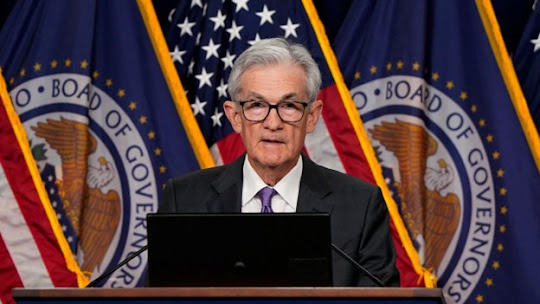America's budget is a ticking time bomb, set to detonate with repercussions that will ripple through the global economy.
As I delve into the intricacies of America's fiscal health, the conversation becomes increasingly fraught with dire predictions and unsettling trends. Alarm bells are ringing across financial circles as the trajectory of U.S. government spending suggests a crisis is not merely possible but imminent. The United States, a titan of economic might and a linchpin of global financial stability, now treads a hazardous path. This precarious journey threatens to destabilize its own economic foundations as well as shake the very core of the international economic order.
In
reviewing the past fiscal year, the numbers reveal a troubling story. The
federal government's expenditures have outstripped its revenues by an
overwhelming $2 trillion, equivalent to 7.2% of the Gross Domestic Product
(GDP). Remarkably, this massive deficit emerges not in the aftermath of a
recession or as part of a deliberate stimulus effort, but during a period
characterized by the lowest unemployment rates seen in over half a
century—sub-4% for the longest stretch on record. Traditionally, a deficit surpassing
3% of GDP has been viewed as a clear indicator of fiscal distress, yet such
benchmarks have not been met since 2015. Looking ahead, forecasts are even more
sobering, with predictions that the United States’ net debt is on course to
exceed 100% of GDP by next year—an increase of about forty percent within a
mere decade. These figures underscore the gravity of the fiscal
irresponsibility that now shadows America's economic future.
This
fiscal imprudence is rooted deeply in both America’s recent and distant past. The accumulative
financial burdens from prolonged military engagements, the 2008 financial
crisis, a global pandemic, and successive unfinanced tax cuts have all
contributed to this colossal debt. Despite bipartisan lip service to fiscal
responsibility, the reality reflects a stark deviation from prudence. The
imminent decision on whether to extend Donald Trump's 2017 tax cuts looms
large, poised to exacerbate our fiscal woes further.
It
is evident that this level of profligacy is unsustainable. The consequences of
continued fiscal negligence are dire, necessitating a swift and decisive
response. The potential solutions are limited and fraught with difficulty. The
least painful would involve fortuitous circumstances—such as a drop in global
real interest rates or a surge in productivity, perhaps spurred by advancements
in artificial intelligence—that might allow the economy to outpace the growth
of its debts.
However,
relying on good fortune is a gamble that disregards the gravity of our
predicament. A more responsible approach would require substantial fiscal
adjustments. The International Monetary Fund estimates a necessary correction
in the realm of a 4% GDP reduction in spending or an equivalent increase in
taxation by 2029 to stabilize our national debt. While America has navigated
such adjustments before—specifically from 1989 to 2000, spurred by the
so-called "bond vigilantes"—today's geopolitical and demographic
challenges render a repeat of this feat unlikely.
The
third and most concerning option involves inflating away our debts. This could
transpire if populist influences, akin to those espoused by former President
Trump, were to dominate the Federal Reserve’s policies. Ideas such as
appointing a compliant Fed Chair or granting Congress oversight over interest
rates could decouple the Fed's actions from economic necessities, fueling
inflation. Such a scenario would devalue bondholders' and savers' assets,
transferring wealth from creditors to debtors through inflationary erosion.
Moreover,
our fiscal irresponsibility threatens to destabilize the global financial
system. The U.S. dollar, as the world's reserve currency, underpins
international trade and investment. A less stable dollar would not only
increase global capital costs but also drive a frantic search for an
alternative reserve currency, potentially triggering a chaotic transition.
As
a nation, we must acknowledge the gravity of our fiscal irresponsibility. The
path we are on not only endangers our economic future but also risks the
financial stability of the entire world. It is imperative that we steer away
from this brinkmanship and adopt a more prudent fiscal strategy. The world,
much like ourselves, cannot afford the consequences of America's financial
recklessness. This is not merely a domestic issue but a global imperative, for
the ramifications of our decisions extend far beyond our borders.
In
plain terms, the journey ahead is fraught with challenges, but the course
correction is both necessary and urgent. We must temper our fiscal profligacy
with prudence to safeguard not just our own economic future, but also that of
the global community that depends so heavily on our financial stewardship.





No comments:
Post a Comment